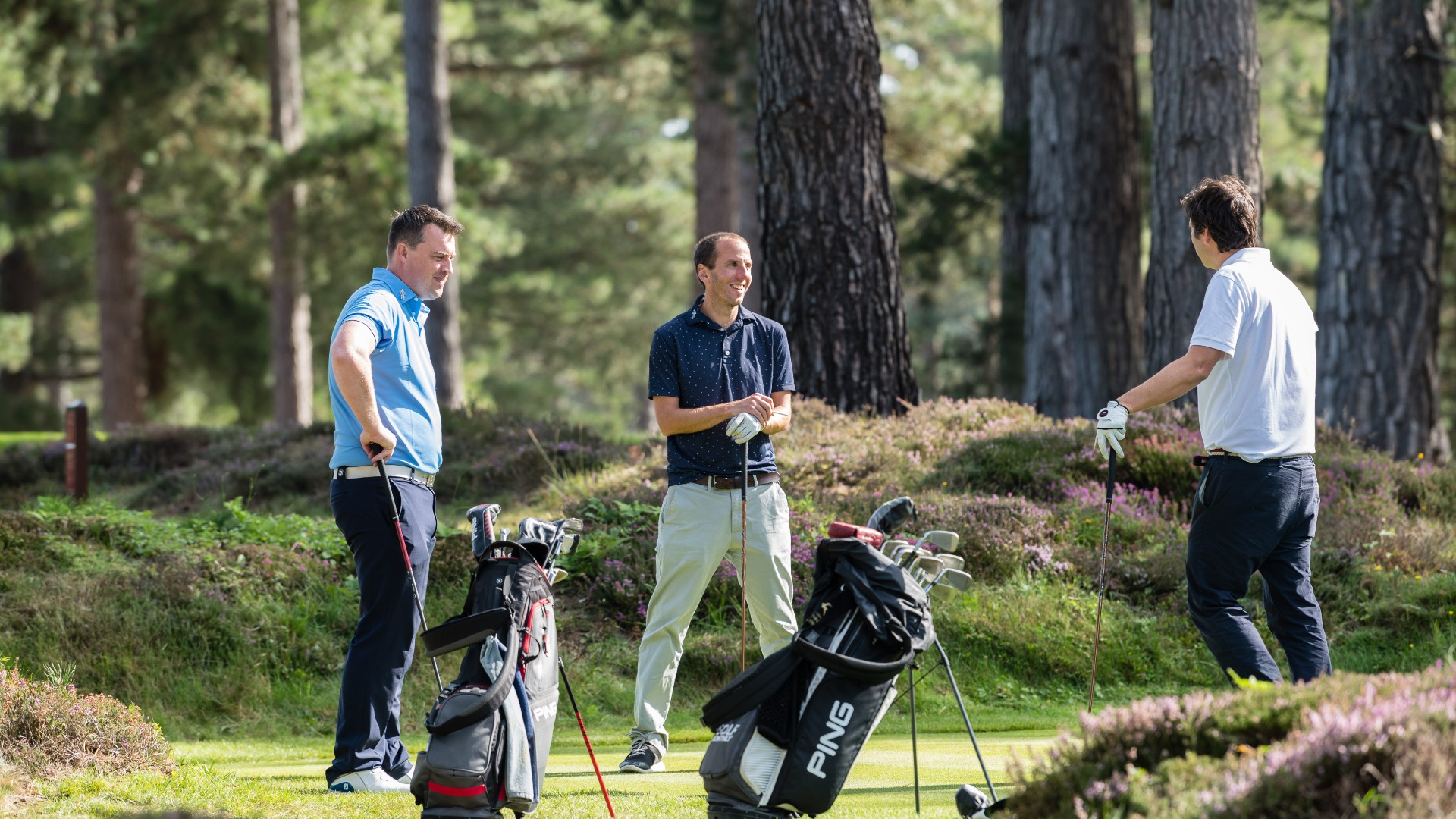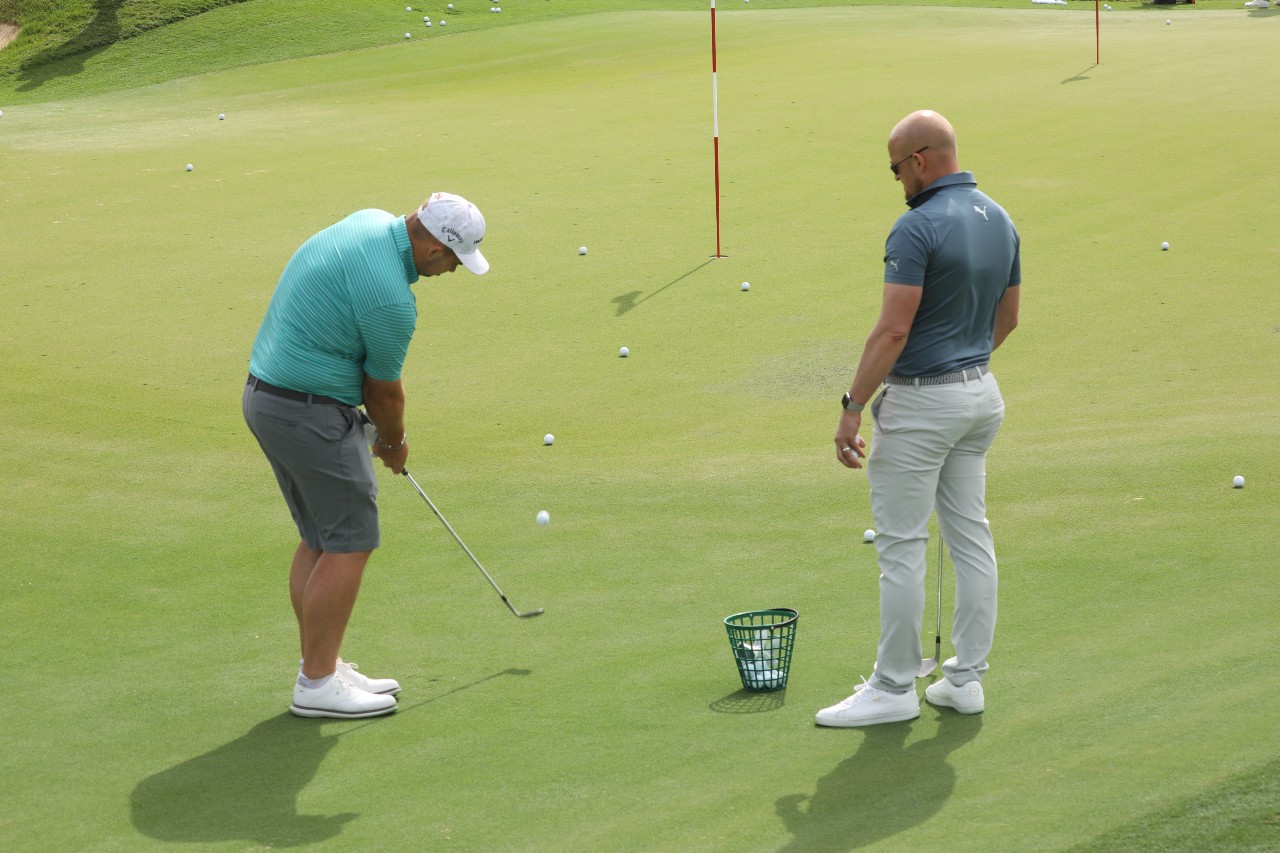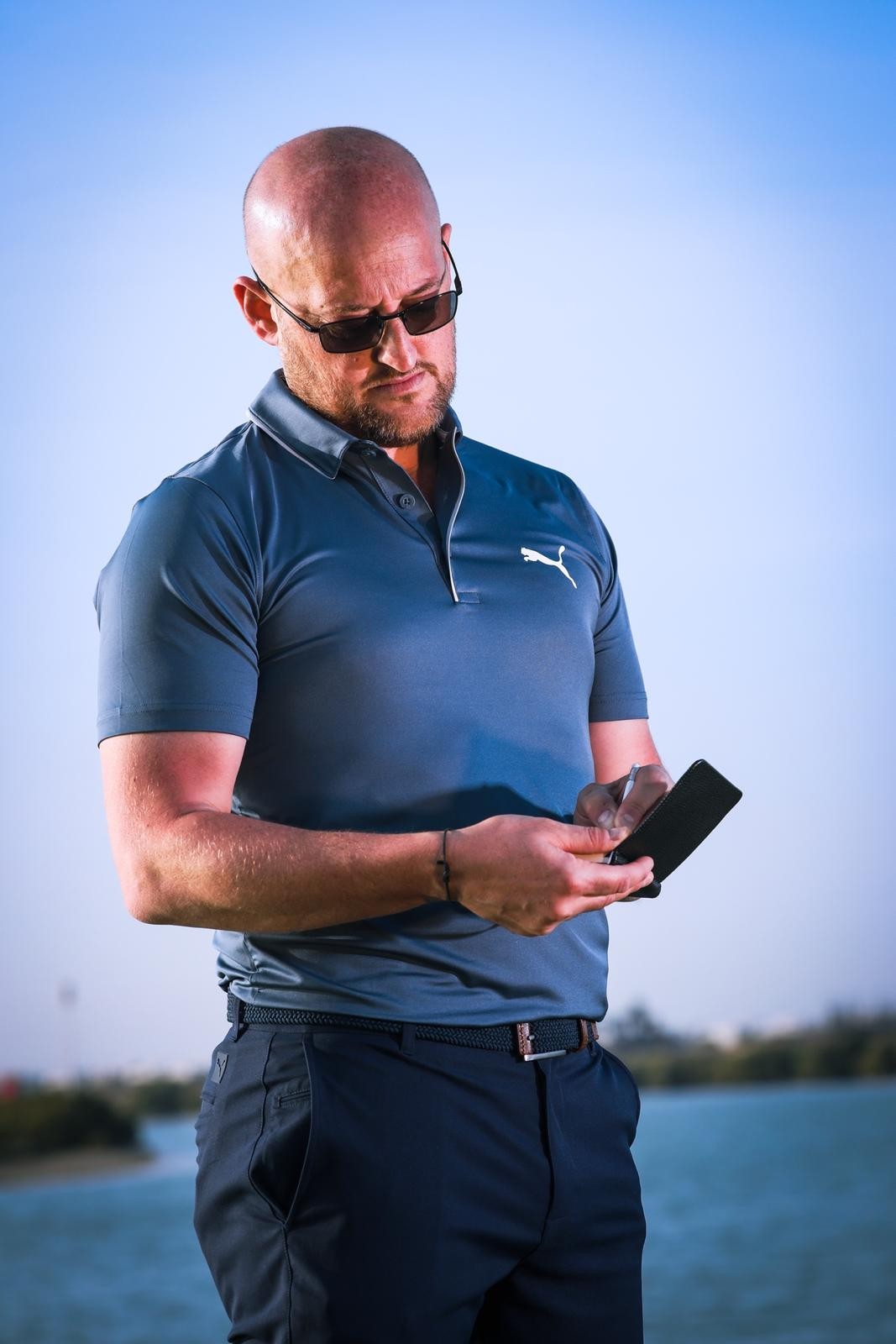How Much Is It OK To Talk About Our Own Round Of Golf?
Mental coach Duncan McCarthy on how to limit how much we should inflict on others in our post-round summaries


Golfers have been emptying clubhouses for decades by talking about how they’ve just played, in great detail and at great length. One thing that is for certain is that it should be limited – sometimes we like our stories more than others do. Also, a lot of the time our stories can be quite unhelpful, especially if you’re the person who comes in moaning that you’ve just shot a 75 and that it should have been a 70.
Number one, nobody is that interested in your golf even though you are. Number two, we are telling ourselves that it wasn’t good enough and the stories that we tell ourselves can be quite detrimental. We talk about the shots that we missed or the bad bounces that we got rather than what went well. That is probably not just a golf thing, we do it in everyday life and focus on what went badly on a certain day rather than the good stuff.
We have to limit what we talk about as people really aren’t that bothered and we don’t want to be the person who, when we leave the room, everybody else breathes a big sigh of relief that we’ve gone.
If someone asks how we’ve got on, that’s exactly what they mean. We can put a full stop after our score. If the human instinct wants to kick in and make a comment, then do so. We can explain that it was fun or tough but don’t linger on this as people’s attentions are quite short anyway and particularly after a Saturday medal.
It doesn’t have to be boring and we can have a bit of fun with it. Others will only hear what we say to them but we hear everything that we say to them and to ourselves. We’ve got to be really careful with that self-talk and we have the option to give an example of a knifed chip that’s gone out of bounds or, probably more helpful, we can relate to a great bunker shot at the 18th.
We do have that choice, for me it would be more beneficial to share the upbeat one. It’s not about shying away from the poor shots, you can address that with a lesson, but by just repeating the story of the poor shot it will just continue internally.
Generally speaking our B game will probably show itself the most, our A game will occasionally show its face if you’re lucky and our C game might also be quite common if we’ve been struggling. So, if we are in the bar in the clubhouse, we are going to be surrounded by people who will be telling one another that we’ve left a few shots out there. We’re all thinking similar stuff but we don’t have to externalise it.
Subscribe to the Golf Monthly newsletter to stay up to date with all the latest tour news, equipment news, reviews, head-to-heads and buyer’s guides from our team of experienced experts.

If we do make a great birdie at the Stroke Index 1 hole, how do we stop ourselves telling others when we know that all that we want to do is to show off a bit? We could go silent and sit there and say nothing which is a bit weird or we could ask other people a question about their game. Now we are replacing a potentially unhelpful action with a helpful one, ask your mates about their game. A lot of us ask a question with the sole purpose of getting the same question back but you need to limit that.
A helpful tip is to draw a line under what we’ve done when you’re sticking your clubs in the boot of the car or when we’re changing our shoes. Tell ourselves that we’re done and just go and chew the fat and ask different questions and, if we can do that on a repeated basis, then that will become a habit and it will become the norm.
We all want to be the cool one who doesn’t talk about our own game and shoot some good numbers and enjoy a nice pint after the round. But a lot of us want to extend the suffering and talk about the last few hours and we really struggle to draw a line under any of it.
I say this to the top players; what you do and who you are are two separate things. We’ve just played golf but that’s not our identity as a person so we don’t have to take that identity into the clubhouse. Don’t bring it into the bar and have some self-disciple with it.
And, if we do, then talk about the good stuff. It’s OK to say that we loved being out there and, not nearly often enough, are we surrounded by people like this but it can have a great impact on those around us.

Duncan McCarthy is a mental coach who works with golfers across all tours including Marcus Armitage, Erik van Rooyen and Women's Open winner Ashleigh Buhai.
He passionately believes that his job as a mental coach is to take individuals and teams to new levels of performance and achievement. His obsession with achieving peak performance led him through his academic period through university to where he is today, working and succeeding with his clients. He pulls together over 20 years of coaching and 15 years of coaching professional level athletes to give an unquestionable and proven track record of expertise with every client.
Away from his role, Duncan still plays to a high standard himself, a former professional now playing off +2 and loves spending time with his two boys and wife.